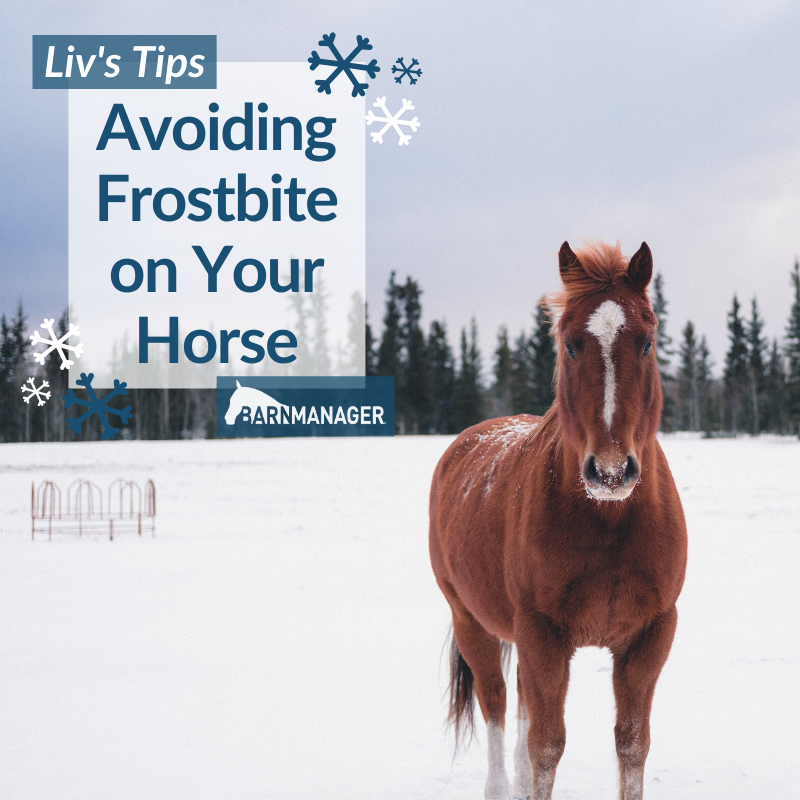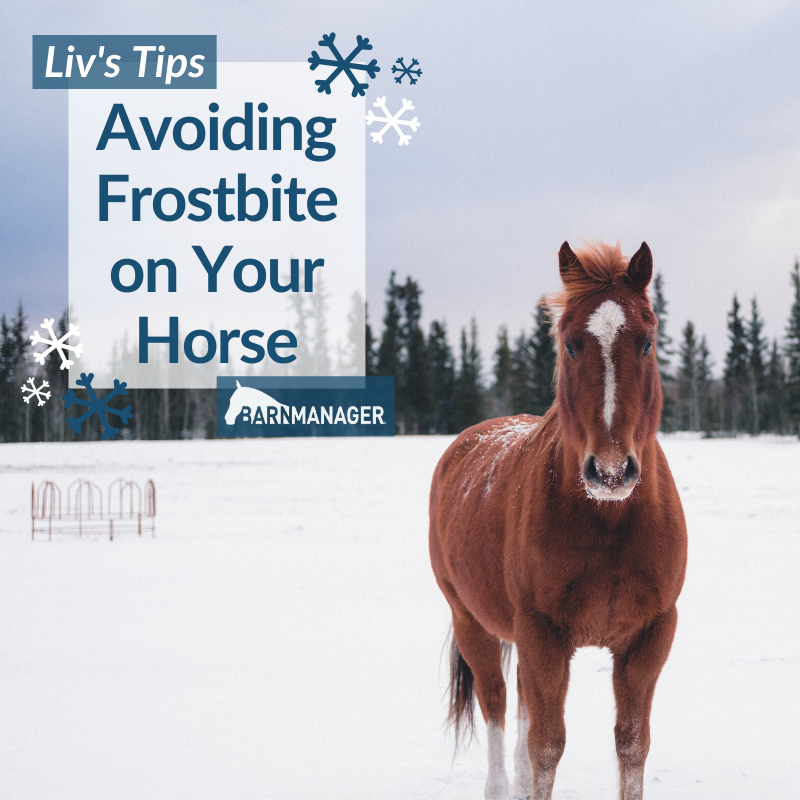
Liv’s Tips: Avoiding Frostbite on Your Horse
When tiny cells in your horse becomes so bitterly cold that ice begins to develop inside of them, it causes the expansion and rupture of the cells, which is what causes what we best know as frostbite!

Imagine this in a whole region of cells, like in your fingers or your horse’s ear. These ruptured cells are now dead, which causes the area to have decreased blood flow and swelling and a whole mess of dead tissue. An important note here: this tissue will NOT grow back!
Major problems follow as the dead tissue can leak toxins into your horse and cause gangrene and massive infection, famous for being gross and black and generally dangerous.
Horses are typically susceptible to frostbite on their ears and their penises. This is usually seen when a horse is sedated with certain types of drugs that relax the muscles that hold the penis in. Then, the exposure sets in and you can only imagine…
A horse is at most risk in extreme cold, especially when there is no relief from the wind, or your horse is damp or wet. A horse that is already compromised by being a hard keeper, or a horse without enough forage, or a horse with some medical issue going on is also at risk. Some toxins found in plants and rancid feeds can cause vasoconstriction, which increases risk.
Fortunately, frostbite in horses is not extremely common and can be prevented by ensuring that your horse has shelter from the wind if it is turned out in extreme cold and that it is able to stay dry, to take in adequate calories, and to forage to generate normal body heat.
Want more from Liv Gude? Visit ProEquineGrooms.com! As a former international dressage groom for years, Liv Gude founded ProEquineGrooms.com as a way to unite grooms in the horse industry. The educational website also serves to entertain and inform horse owners across all disciplines about horse care, grooming, and health. Click here to check it out!